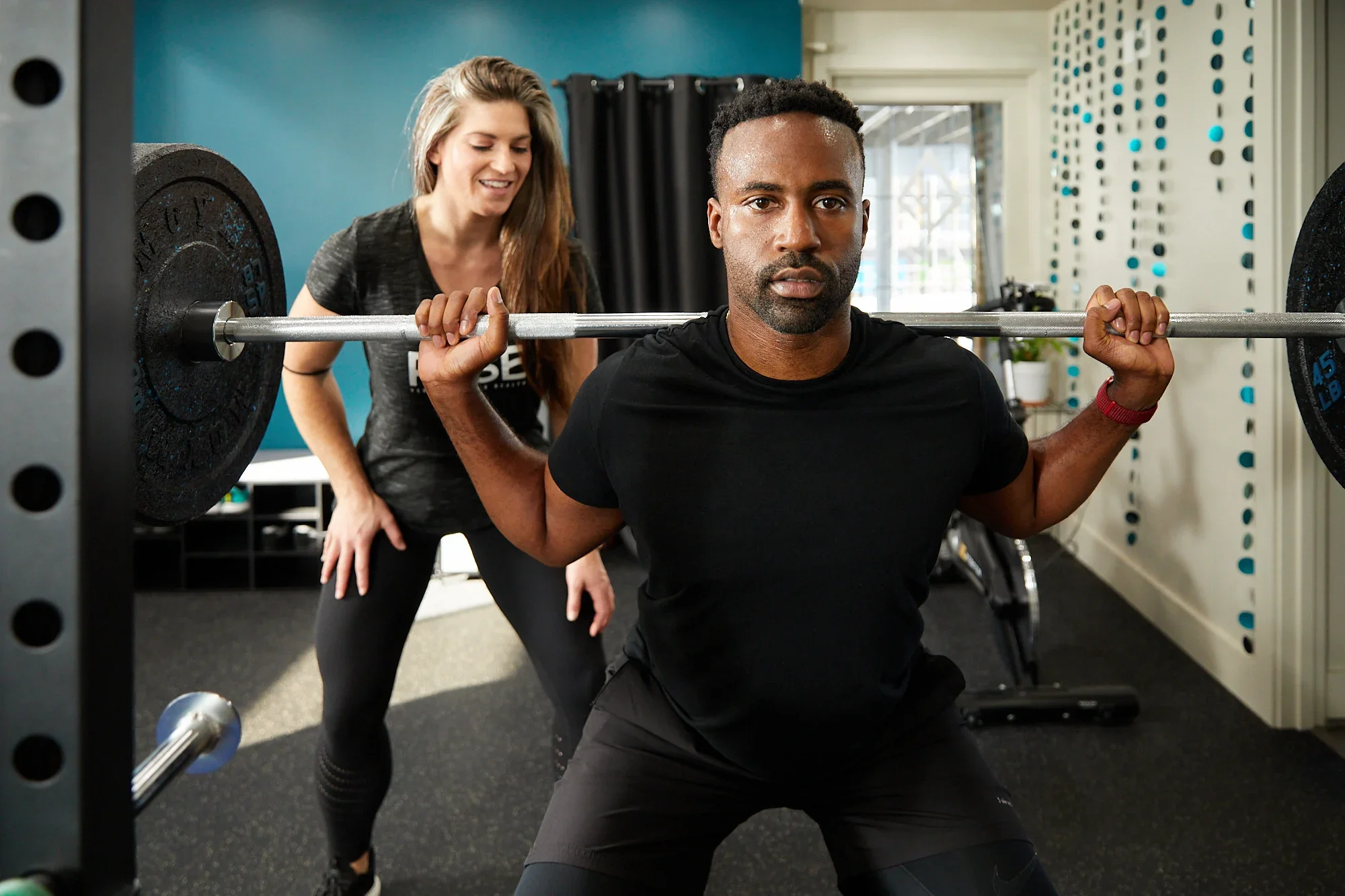The Science Behind Strength Training for Runners: What Research Supports
The running community has historically believed that the best way to improve performance is to run more miles. But research has consistently shown that strength training offers additional benefits to running performance that endurance work alone can’t provide. From reducing injury risk to improving running economy and race times, the science is clear: if you want to become a better runner, you need more than miles!
READ: Strength Training for Runners in Seattle: A Science-Backed Approach to Longevity
At RISE Performance & Health in Seattle, we help runners combine evidence-based strength training with smart endurance work to maximize results. Let’s take a closer look at what the research says.
Strength Training Improves Running Economy
Running economy—the amount of oxygen your body uses at a given pace—is one of the best predictors of endurance performance. Studies have found that runners who incorporate strength training into their programs improve their running economy, meaning they use LESS energy to maintain the SAME pace.
How does this happen? Strength training builds neuromuscular efficiency, improves stride mechanics, and enhances force production with each step. In simple terms: your body works less to do more. This translates to smoother, more efficient running, especially in long-distance events.
Reducing Injury Risk Through Strength Work
Injuries are one of the biggest obstacles runners face, and research shows that up to 80% of runners experience some form of injury each year! Strength training plays a key role in lowering that risk.
Here’s why:
Stronger muscles absorb more impact, reducing stress on joints and tendons
Hip and core strength improve what we call motor control, decreasing strain on knees and ankles
Balanced strength across muscle groups prevents compensations that lead to overuse injuries
Multiple studies confirm that strength training reduces the likelihood of common running injuries like shin splints, IT band syndrome, and runner’s knee. For runners in Seattle navigating hills, uneven terrain, and long training cycles, these benefits are crucial for consistency!
What the Research Says About Performance Gains
Beyond injury prevention, strength training has been shown to directly enhance performance. Research highlights include:
Faster race times: Runners who added strength training to their regimen cut their times in 5K and 10K races.
Better hill performance: Increased lower-body power translates into stronger climbs.
Improved sprint capacity: Plyometric and explosive training improve finishing kicks and overall speed.
Greater endurance: Stronger muscles resist fatigue longer, allowing runners to hold pace late into races.
These findings show that strength training doesn’t just make runners healthier—it makes them faster.
READ; Women Build A Healthier, Wealthier World
Applying the Science: Strength Training With RISE in Seattle
At RISE Performance & Health, we translate the latest research into practical, individualized training for runners. Our approach blends physical therapy, strength coaching, and performance programming to help Seattle runners move efficiently, stay injury-free, and achieve their goals.
Here’s what you can expect when working with us:
A personalized assessment to identify strengths, weaknesses, and mobility limitations
Strength programs designed to complement your running schedule
One-on-one coaching focused on running-specific strength, core stability, and movement quality
Ongoing support to ensure your training adapts as your mileage and race goals evolve
Science is clear: strength training makes better runners. And at RISE, we make sure the research works for you.
Ready to run stronger, faster, and with fewer injuries? Book your assessment today and let’s build the right balance of strength and endurance for your running goals.

